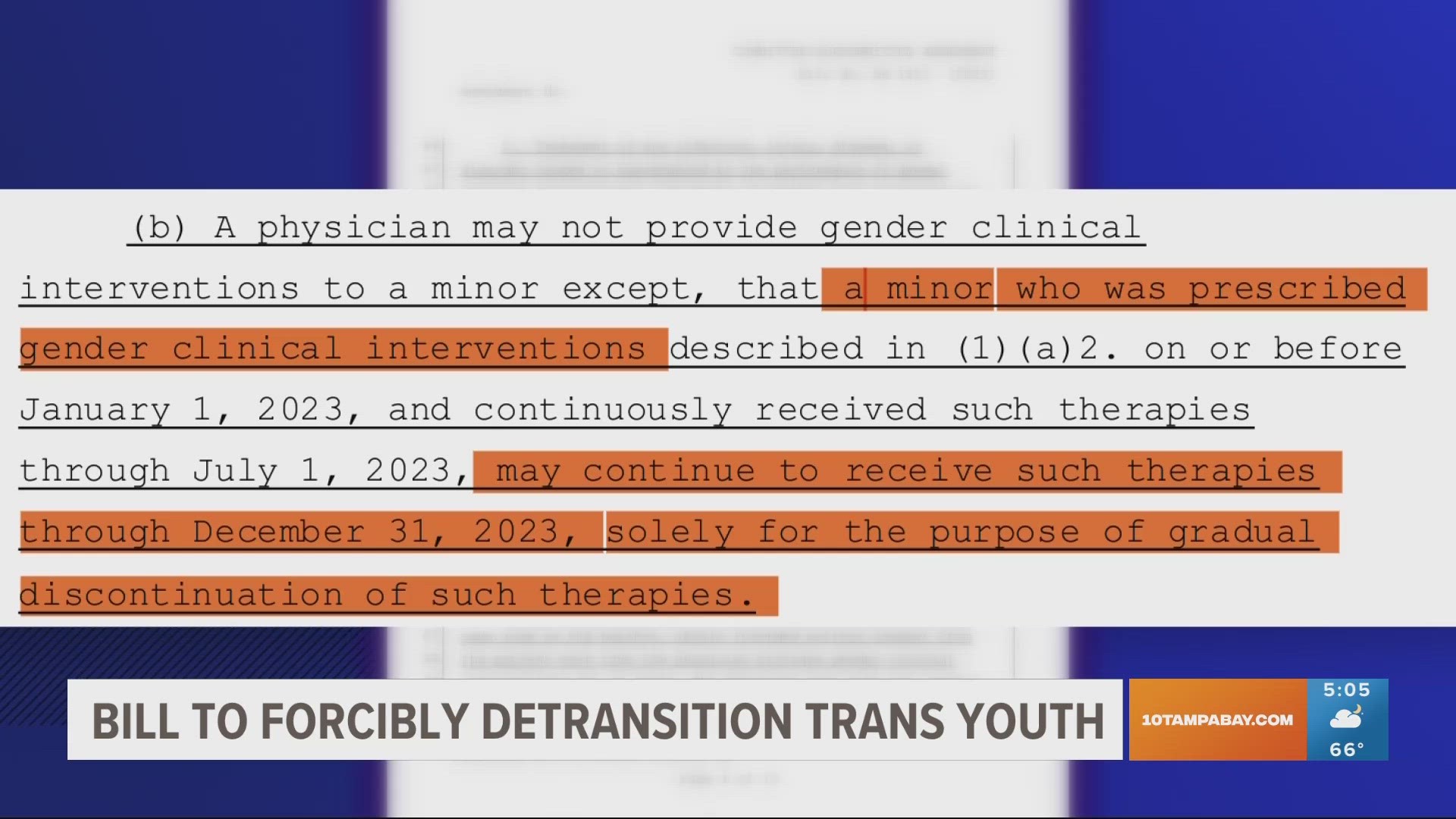TALLAHASSEE, Fla. — A bill in the Florida legislature that would require all transgender youth to de-transition by the end of the year is making its way through committees to a possible vote.
Last week, the Florida Board of Medicine prohibited puberty blockers and hormone therapy for patients younger than 18. With the ban, the Sunshine State became the eighth state to restrict transgender care for minors.
This new legislation, HB 1421, would take the treatment ban further, prohibiting new "gender clinical intervention" treatments for transgender youth. If a person under 18 is already receiving gender-affirming care, they can continue to receive those therapies through Dec. 31. However, that exception is "solely for the purpose of gradual discontinuation of such therapies," also known as de-transitioning.
Gender clinical interventions include gender-affirming surgeries that "alter primary or secondary sexual characteristics" as well as puberty and hormone blockers or therapies.
Additionally, doctors and healthcare providers could be arrested and have their licenses suspended if they perform, attempt or "conspire" to provide gender clinical interventions to a minor.
If the bill became law, doctors could be sued by people who received gender clinical interventions, under certain conditions. It would also prohibit health insurance policies to cover gender-affirming care.
The bill would also allow Florida courts to "enter, modify, or stay a child custody determination" in order to "protect the child from being subjected to gender clinical interventions" in another state. This means parents looking to find gender-affirming care for their children out of state could have their kids taken away from them.
Other prohibitions in this bill include changes to a person's biological sex on their birth certificates.
HB 1421 made it through the Florida House's Healthcare Regulation Subcommittee and was sent on Wednesday to the Health & Human Services Committee. There is no date yet on when the committee will discuss the bill.
If it passed through the committee, it will go to the House for a vote. From there, depending on what happens, the bill would go to the Senate for approval.
If the bill passes both the House and Senate and Gov. Ron DeSantis puts pen to paper, the newly minted law would go into effect on July 1.
A companion bill, SB 254, is on the agenda Thursday in the Fiscal Policy committee substitute.

